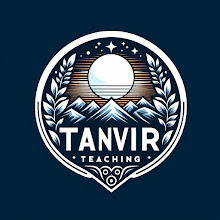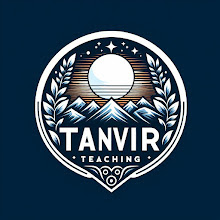The Employment Renaissance: How AI Will Create More Jobs
Introduction:
In the era of rapid technological advancements, Artificial Intelligence (AI) has often been perceived as a harbinger of job displacement. However, a deeper exploration reveals a more nuanced perspective—AI has the potential to not only transform industries but also generate new opportunities. This article delves into how AI is poised to create more jobs, with examples and key insights presented in a structured format.
1.
**Automation Spurs Job Creation:**
Contrary to common belief, the integration of AI-driven automation doesn't necessarily equate to job loss. Instead, it often leads to the creation of new roles centered around overseeing, maintaining, and optimizing automated systems. For instance, as manufacturing plants adopt AI for assembly line processes, the demand for skilled technicians and AI system managers increases, fostering a net gain in employment.
2.
**AI Augmented Roles Across Industries:**
AI is crafted to enhance human abilities, working alongside them rather than supplanting them.In fields such as healthcare, AI assists medical professionals in diagnosis and treatment planning, leading to an increased demand for healthcare workers. This symbiotic relationship between AI and human expertise amplifies efficiency and opens up avenues for new, AI-augmented job roles. Nurses, doctors, and healthcare administrators will collaborate more closely with AI tools, creating a demand for professionals with a hybrid skill set.
3.
**Emergence of AI Specialist Positions:**
The widespread adoption of AI necessitates a workforce equipped with specialized knowledge. This has given rise to new job roles such as AI specialists, data scientists, and machine learning engineers. These professionals are essential for developing, implementing, and maintaining AI systems across various industries, establishing a niche job market that didn’t exist a few years ago. This expansion of specialized roles illustrates the transformative power of AI in creating expertise-driven employment opportunities.
4.
**AI in Creative Industries:**
AI is proving to be a valuable collaborator in creative sectors. In fields like graphic design, content creation, and music composition, AI tools are assisting artists rather than replacing them. The demand for creative professionals who can harness the potential of AI-driven tools is on the rise, reshaping the landscape of creative industries. Content creators, designers, and musicians will find new avenues for expression and collaboration through the integration of AI tools.
5.
**Customer Service Enhanced by AI:**
The integration of AI in customer service has revolutionized the way businesses interact with their clients. While basic queries may be handled by AI-powered chatbots, complex issues often require human intervention. This has led to an increase in jobs related to customer service management, focusing on personalized interactions and complex problem-solving. Customer service representatives, especially those with strong interpersonal skills, will play a crucial role in providing human-centric support alongside AI technologies.
6.
**AI-driven Entrepreneurship:**
AI's accessibility has empowered entrepreneurs to explore innovative ventures. Startups specializing in AI-driven solutions and applications have become prevalent. This surge in entrepreneurial activity contributes to job creation, fostering an ecosystem where individuals with diverse skills can thrive in the AI-driven business landscape. The rise of AI-driven startups introduces a multitude of job opportunities, from software developers to business analysts and marketing specialists.
7.
**Precision Agriculture and Job Opportunities:**
The agriculture sector is experiencing a transformation through AI applications like precision farming. AI-driven technologies monitor crop health, optimize resource usage, and enhance yield. This shift not only requires skilled agricultural technologists but also opens up opportunities for data analysts, drone operators, and AI system managers within the agricultural domain. This diversification of roles showcases how AI contributes to employment across varied domains, including traditionally non-tech sectors.
8.
**AI in Education:**
The adoption of AI in education has led to the creation of new roles such as AI curriculum designers, educational technologists, and AI-driven learning experience architects. These professionals focus on integrating AI tools into the education system, personalizing learning experiences, and ensuring the effective use of technology in educational settings. The collaboration between educators and AI technologies expands the possibilities of education, creating jobs that blend pedagogical expertise with technological proficiency.
9.
**Health Tech and AI-driven Healthcare Jobs:**
The healthcare industry is witnessing a surge in AI applications, from diagnostic tools to personalized medicine. This evolution creates jobs for healthcare AI specialists, data analysts, and professionals specializing in the ethical and secure implementation of AI in healthcare settings. Radiologists working alongside AI image analysis systems, for example, illustrate how technology augments human expertise, resulting in an increased demand for professionals at the intersection of healthcare and AI.
10.
**AI Supporting Small Businesses:**
AI's potential to streamline operations and enhance decision-making is not limited to large corporations. Small businesses can leverage AI for tasks like inventory management, customer engagement, and marketing. This creates opportunities for AI consultants and specialists catering specifically to the needs of small businesses. The democratization of AI technologies ensures that even smaller enterprises can benefit, contributing to the creation of jobs at a grassroots level.
11.
**Government Initiatives and AI Jobs:**
As governments recognize the transformative potential of AI, they are investing in initiatives to foster AI research, development, and implementation. This has led to the creation of jobs in the public sector, including policy analysts, AI ethicists, and government AI strategists. These roles focus on ensuring responsible AI deployment, addressing ethical considerations, and formulating regulations, highlighting the multifaceted impact of AI on the job market.
Conclusion:
In conclusion, the integration of AI into various industries is not a threat to employment but a catalyst for a profound employment renaissance. The key lies in recognizing the symbiotic relationship between AI and human skills. As industries evolve, so do the opportunities for a workforce that can harness the potential of AI-driven technologies. From specialized roles in AI development to the integration of AI across diverse sectors, the job landscape is expanding, paving the way for a future where AI and human collaboration redefine the nature of work. The journey ahead promises not just innovation but also a wealth of new opportunities for individuals to contribute to and thrive in the evolving world of AI – driven employment.





.jpg)






0 Comments